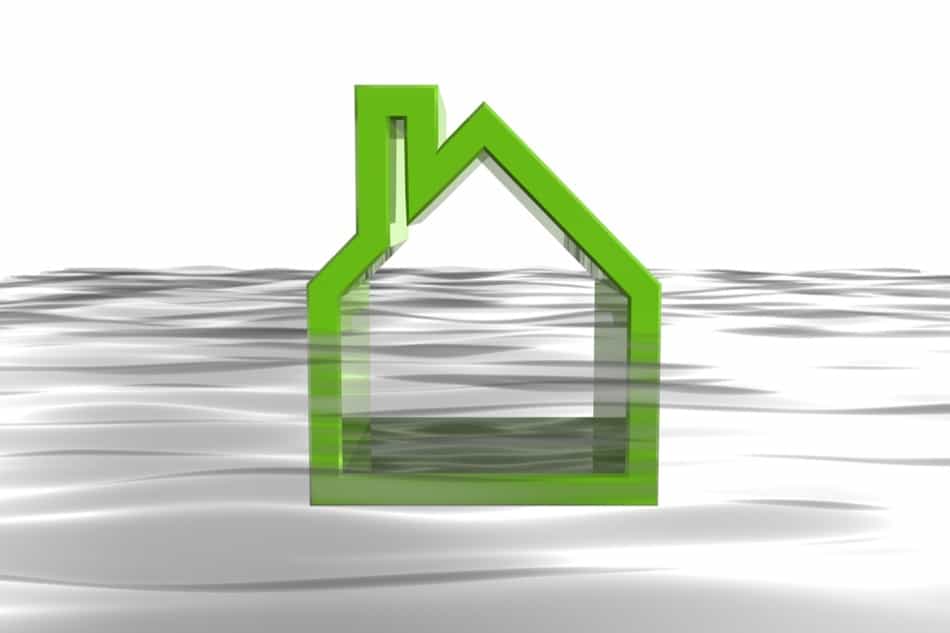
What to Do if Your Home Is Underwater
 When a home is underwater, it isn’t literally under actual water. When someone refers to an underwater home, they’re referring specifically to the mortgage. A mortgage becomes underwater when the loan’s balance is higher than the fair housing market value for the property. For example, if a homeowner owes $300,000 on their home but the current market value for the home is currently $280,000, then that loan is considered underwater. Having an underwater mortgage can be a bad situation, but there are a few ways for Washington County homeowners to deal with this situation to get out of the home or turn the tides to make the home’s value better in the future. Here are some of those options.
When a home is underwater, it isn’t literally under actual water. When someone refers to an underwater home, they’re referring specifically to the mortgage. A mortgage becomes underwater when the loan’s balance is higher than the fair housing market value for the property. For example, if a homeowner owes $300,000 on their home but the current market value for the home is currently $280,000, then that loan is considered underwater. Having an underwater mortgage can be a bad situation, but there are a few ways for Washington County homeowners to deal with this situation to get out of the home or turn the tides to make the home’s value better in the future. Here are some of those options.
For informational purposes only. Always consult with a licensed mortgage or home loan professional before proceeding with any real estate transaction.
Option 1: Stay in the Home and Build Equity
Staying in a home with an underwater mortgage can be difficult, but it can work in certain situations. If the homeowner has the money to keep paying their mortgage each month and wants to continue living in the home despite the underwater mortgage, there is nothing stopping them. The concern comes in that there is no way to tell if the home’s value will go back up. If another housing bubble bursts, homeowners could end up spending a lot more money on a home than they should. However, if the homeowner plans on living there for a long time, this can potentially be a good option regardless.
Option 2: Sell the Home to Pay the Loan
The unfortunate fact about selling an underwater home is the homeowner will lose money on the deal. However, if losing money on the sale means the homeowner can get out of the home and start fresh somewhere else, it can be worth it. By selling the home, the homeowner can gain most of the money needed to pay off the loan. However, when selling a home, it’s highly unlikely the homeowner will gain enough money that they will be able to pay off the loan completely using just those proceeds. When a home is sold, all agent fees come out of what the seller earns, and that commonly costs around 6% of the home’s cost or 3% to each agent involved. In order to fully pay off the loan, the homeowner will need to supplement what they earned from selling the home with their own savings. This may not be the ideal situation for a homeowner, but it can get them out of an underwater home.
Option 3: Sell the Home Via Short Sale
The final option for dealing with an underwater home is to sell the home via a short sale. Short sales are for homeowners who are having trouble making their mortgage payments and don’t have the money to make up the difference if they sold their home the traditional way. In a short sale, the mortgage lender and the homeowner agree to sell the home for less than what is still owed on it. Short sales are typically the last option for lenders because they end up losing money on these deals, so the homeowner will need to provide proof they can’t afford their mortgage. While short sales aren’t glamorous, they are a step above foreclosure, which can affect a homeowner in more ways than a short sale.
Owning an underwater home is difficult, especially for those who are having trouble with their income. These are three of the most common ways to deal with an underwater mortgage, but there are others. For more information about these and additional options, be sure to work with a skilled real estate agent.
For informational purposes only. Always consult with a licensed mortgage or home loan professional before proceeding with any real estate transaction.



